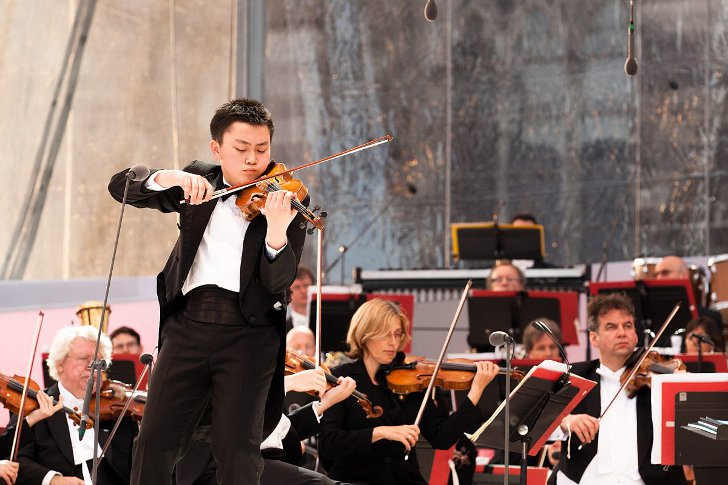It all began in 1978, when BBC established BBC Young Musician of the Year (later renamed BBC Young Musician), a televised national music competition for musicians under 18 years of age. Inspired by the competition’s success, the European Broadcasting Union (EBU) established a similar competition that was named Eurovision Young Musicians after the EBU’s Eurovision Song Contest.
The inaugural Eurovision Young Musicians competition took place in Manchester, UK in 1982. Only six countries took part; the contest was won by German pianist Markus Pawlik. Notably, Germany also won the Eurovision Song Contest that year with the song “Ein bißchen Frieden” by Nicole.
Since then, Eurovision Young Musicians has been biennially on even years, except for 2020, when the event was canceled due to the COVID-19 pandemic. Sometimes it is held in conjunction with another event such as the Vienna Festival (Wiener Festwochen) from 2006 to 2012 and the Edinburgh International Festival in 2018.
Eligible participants include active members of the European Broadcasting Union. As of 2023, 42 countries have participated in the contest, more than ten of them only once. Every country chooses one young talented musician between the ages of 12 and 21 as its representative in the contest. Each participating musician performs a classical music piece accompanied by the host broadcaster’s orchestra.
Participants can play any instrument; as of 2023, past winners have included cellists, pianists, violinists, as well as a clarinetist, a flutist, a violist, and a saxophonist. Other instruments that have been played in the televised finals include the accordion, the bassoon, the cimbalom, the contrabass, the double bass, the euphonium, the guitar, the harmonica, the harp, the horn, the kanun, the oboe, the organ, the percussion, the recorder, the tamburica, the trombone, and the trumpet.
The winner of the competition is chosen by a jury composed of international experts. Past winning countries have included Austria, the Czech Republic, France, Germany, Greece, the Netherlands, Norway, Poland, Russia, Slovenia, Sweden, and the United Kingdom. Interestingly, Austria is the only country to have ever scored a home victory.
Many winners of Eurovision Young Musicians have successfully transitioned into an adult career. They include, for example, violinist and violist Isabelle van Keulen (Netherlands, 1984), violinist, violist and conductor Julian Rachlin (Austria, 1988), violinist Bartek Niziol (Poland, 1992), cellist Natalie Clein (UK, 1994), cellist Julia Fischer (Germany, 1996), violinist Dalibor Karvay (Slovakia, represented Austria in 2002), violinist Alexandra Soumm (France, represented Austria in 2004), violinist Ziyu He (China, represented Austria in 2014), and many others.

Photo: youngmusicians.tv




